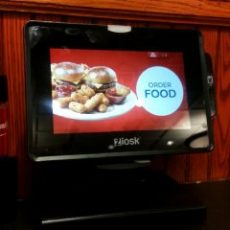How well do you track your spending habits?
We ask that question because a great number of people have absolutely no idea how or where they spend their money. This ends up with folks looking at their bank statements wondering where their money went, and sometimes leads them to either overdraw on their bank accounts or go over the limit on their credit cards.

Why is this important? Because while the Justice Department shows that the number of bankruptcies decreased 5 years in a row between 2010 and 2015, Nerd Wallet shows that overall personal debt has increased over at least 12 years.
Their points are (all information here is pre-Covid):
* The rise in the cost of living outpaced income growth over a 13-year period. Median household income has grown 28% since 2003, but expenses have outpaced it significantly. Medical costs increased by 57% and food and beverage prices by 36% in that same span.
* Total debt is expected to surpass the amounts owed, and Americans will end up owing more than they did in December 2007.
* The average household with credit card debt pays a total of $1,292 in credit card interest per year, and the number is on the rise.
It’s smart to go into each month with a general spending budget and what we call the “play” spending budget. The general budget covers monthly bills and general expenses such as gas and food. The play budget is entertainment and being able to eat out when you’re in the mood, money you won’t miss because your bills and expenses are taken care of.
You have to stick to your budget whether you have a lot of money or finances are tight, especially if you’re self employed. What you generate has to last a long time. Look what’s happened over the last few months to most Americans. If you didn’t have a budget you were probably frightened.
The idea of a general budget is that it rarely changes (except for occasional yearly fees or medical bills) so it’s easy to keep track of the bills. It also gives you a sense of how to keep track of your overall spending.
Bills should always come first, but in tough times you might have to decide what’s crucial and what you might be able to negotiate. We need to take care of living space and expenses before doing anything else… well, except for eating. Financial experts say we should pay ourselves 10% of our income first, but we don’t always have 10% to spend on ourselves first, do we? You have a better chance if you’re budgeting, but if not it’s going to be scary.

Only by tracking your spending can you both ensure that you can cover your bills, live your life, and make sure you don’t credit and spend yourself into debt. Those are extreme issues to get out of.
People hate the word “budget”, but it’s essential to giving us peace of mind. Just because there’s a connotation of what a budget should be doesn’t mean it has to be cast in stone, although we would recommend tracking some of it on a spreadsheet to make sure you’re not missing anything.
With that as a background, let’s look at a few ways you can help track your spending that might be simpler to keep up with:
1. Set up automatic bill payments with your bank.
This one can work pretty well for most people as long as you have consistent income and are willing to do direct deposit, since most banks won’t work with you unless you allow it. It’s also the most flexible because every once in a while you might be able to get away without making a payment for a month or two, and it’s easy to go online and change your dollar amount settings temporarily.
2. Set up automatic bill payments with your creditors.
If you have life insurance you’re already used to doing something like this. It works best if your payment will be close to the same amount each month and will save on any possible fees your bank might charge you to do it for you (yeah, some banks charge fees but not all of them; it might behoove you to work with a local bank). You don’t even have to use the bank; these days many of your creditors have a way for you to set up automatic payments on their sites.
The downside is that sometimes your monthly payment is higher (such as if you have a business American Express card, which has a yearly fee that must be paid once a year) and if you forget about it you might find yourself in a bit of financial distress for a short period of time.
3. Keep a running tab of how much you’re spending whenever you buy something.
This one will require a bit of work but you can make it a bit easier by only recording purchases over a certain amount. I’d probably say $10, which you can track using the memo function on your smartphone (or something like Evernote) or go into your phone’s online store and download a tracking app. If you’re buying a lot of things over $10 that should tell you that you should be more cautious on how you’re spending because you’ll find out that a lot of small purchases adds up pretty quickly, but maybe you can still buy your coffee and burger daily.
4. Use cash
This one might scare you, but it’s very helpful. It’s too easy to buy things these days because we put everything on a card, whether it’s a credit or debit card. Yet, we’re more cautious with our spending if we have to use cash. Time Magazine did a study which concluded that not only do people spend less money when using cash but they enjoy what they purchase more. That’s a pretty good benefit of using cash, along with your money staying with you longer.
All of this requires personal responsibility, but it’s pretty simple stuff once you put your mind to it. You’ll have more peace of mind when you know your bills are covered and you still have money to spend so you can enjoy a few things in life without worrying about phone calls and people showing up at your door looking for payment… right?